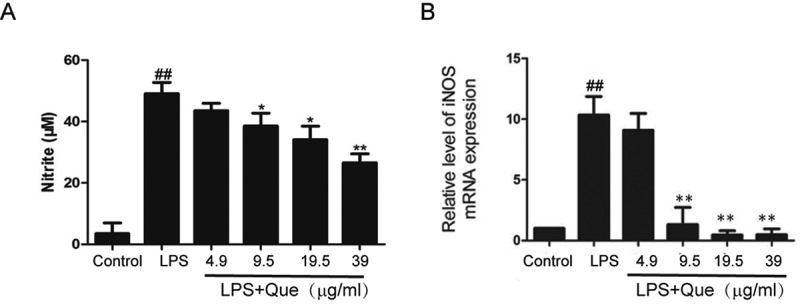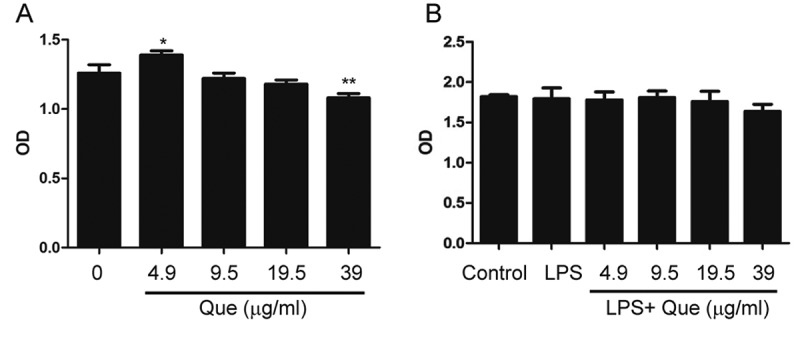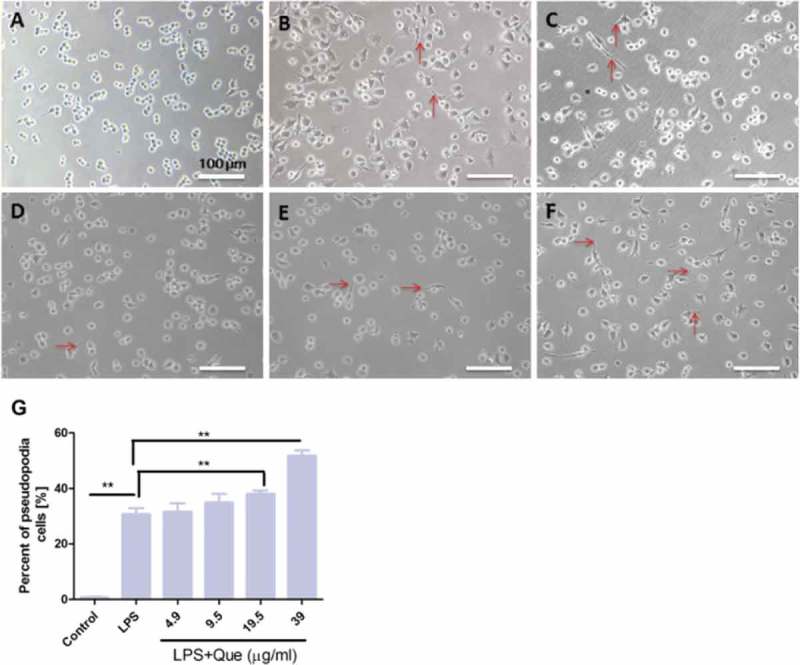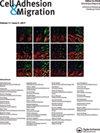槲皮素通过抑制iNOS/FAK/paxillin通路和调节细胞骨架抑制lps诱导的巨噬细胞迁移。
IF 3.3
3区 生物学
Q3 CELL BIOLOGY
Cell Adhesion & Migration
Pub Date : 2019-12-01
Epub Date: 2018-08-01
DOI:10.1080/19336918.2018.1486142
引用次数: 49
摘要
天然类黄酮槲皮素具有抗氧化、抗炎和抗癌作用。我们研究了槲皮素对脂多糖(LPS)诱导巨噬细胞迁移的影响。槲皮素显著减弱lps诱导的一氧化氮合酶(iNOS)衍生的一氧化氮(NO)在RAW264.7细胞中的产生,但不影响细胞的生存能力。槲皮素还能改变细胞大小,使细胞形态变长,液泡增大,细胞核集中。槲皮素明显破坏了f -肌动蛋白的细胞骨架结构。槲皮素对lps诱导的巨噬细胞粘附和迁移具有剂量依赖性。此外,槲皮素抑制lps诱导的p-FAK、p-paxillin、FAK和paxillin以及细胞骨架连接蛋白vinculin和Tensin-2的表达。因此,槲皮素通过抑制NO生成、破坏f -肌动蛋白细胞骨架和抑制FAK-paxillin通路来抑制lps诱导的迁移。槲皮素可能因此有潜力作为慢性炎症性疾病的治疗剂。本文章由计算机程序翻译,如有差异,请以英文原文为准。



Quercetin inhibits LPS-induced macrophage migration by suppressing the iNOS/FAK/paxillin pathway and modulating the cytoskeleton.
ABSTRACT The natural flavonoid quercetin has antioxidant, anti-inflammatory, and anticancer effects. We investigated the effect of quercetin on lipopolysaccharide (LPS)-induced macrophage migration. Quercetin significantly attenuated LPS-induced inducible nitric oxide synthase (iNOS)-derived nitric oxide (NO) production in RAW264.7 cells without affecting their viability. Additionally, quercetin altered the cell size and induced an elongated morphology and enlarged the vacuoles and concentrated nuclei. Quercetin significantly disrupted the F-actin cytoskeleton structure. Furthermore, quercetin strongly inhibited LPS-induced macrophage adhesion and migration in a dose-dependent manner. Moreover, quercetin inhibited the LPS-induced expression of p-FAK, p-paxillin, FAK, and paxillin as well as the cytoskeletal adapter proteins vinculin and Tensin-2. Therefore, quercetin suppresses LPS-induced migration by inhibiting NO production, disrupting the F-actin cytoskeleton, and suppressing the FAK–paxillin pathway. Quercetin may thus have potential as a therapeutic agent for chronic inflammatory diseases.
求助全文
通过发布文献求助,成功后即可免费获取论文全文。
去求助
来源期刊

Cell Adhesion & Migration
CELL BIOLOGY-
CiteScore
6.40
自引率
0.00%
发文量
7
审稿时长
53 weeks
期刊介绍:
Cell Adhesion & Migration is a multi-disciplinary, peer reviewed open access journal that focuses on the biological or pathological implications of cell-cell and cell-microenvironment interactions. The main focus of this journal is fundamental science. The journal strives to serve a broad readership by regularly publishing review articles covering specific disciplines within the field, and by publishing focused issues that provide an overview on specific topics of interest within the field.
Cell Adhesion & Migration publishes relevant and timely original research, as well as authoritative overviews, commentaries, and perspectives, providing context for the work presented in Cell Adhesion & Migration and for key results published elsewhere. Original research papers may cover all topics important in the field of cell-cell and cell-matrix interactions. Cell Adhesion & Migration also publishes articles related to cell biomechanics, biomaterial, and development of related imaging technologies.
 求助内容:
求助内容: 应助结果提醒方式:
应助结果提醒方式:


